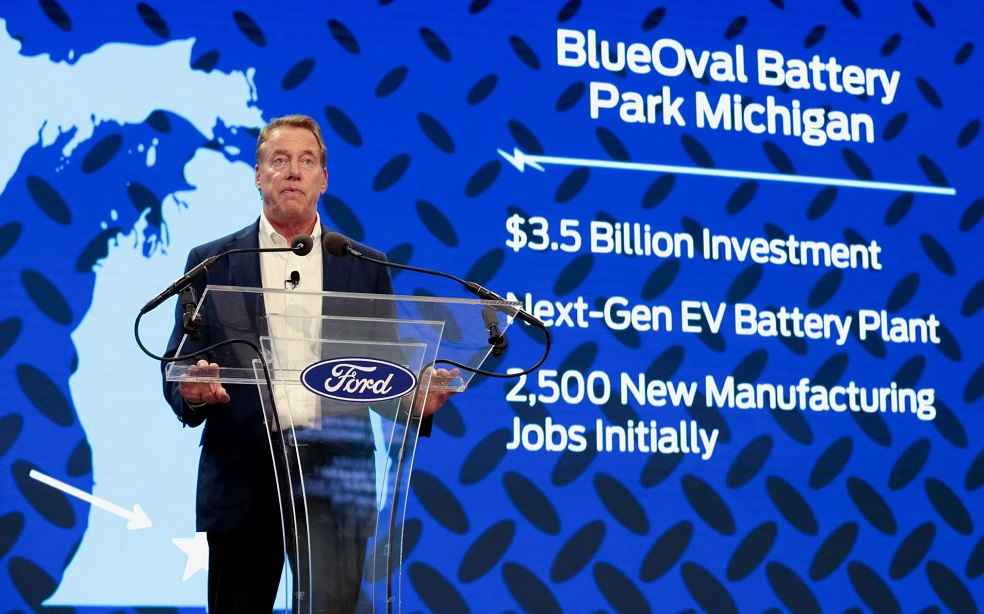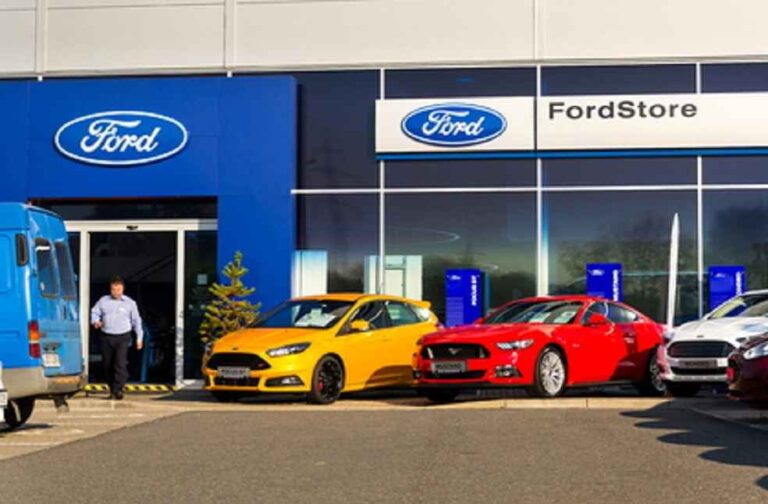Ford Michigan has put a temporary halt on the construction of a pivotal electric vehicle (EV) battery plant, inciting criticism from Republicans due to the firm’s intent to use licensed Chinese battery technology.
Ford confirmed the suspension of activities and reduced spending at the facility will continue “until we’re confident about our ability to competitively operate the plant,” according to spokesperson T.R. Reid.
While no final decision regarding the anticipated investment has been made, this halt aligns with the ongoing second week of a United Auto Workers (UAW) strike against Ford, General Motors, and Stellantis. This labor unrest underscores a broader concern, as the resolution of the strike is expected to ramp up labor costs just as these automotive giants are pivoting towards electric vehicle production.

UAW President Shawn Fain denounced Ford’s decision as a “shameful, barely-veiled threat by Ford to cut jobs”, a stark shift from his previous appreciation for the company’s negotiation efforts which resulted in exempting Ford from a broader strike expansion. Fain’s remarks spotlight the challenging path toward a just EV transition, accusing Ford of contributing to a “race to the bottom” rather than ensuring a smooth shift to EVs.
Ford had originally planned to activate a $3.5 billion plant in Marshall, Michigan by 2026, employing 2,500 workers, and standing as the first to manufacture next-generation lithium, iron, and phosphate batteries on U.S. soil. This ambitious venture significantly depended on licensed technology from China’s Contemporary Amperex Technology Co. (CATL), the leading manufacturer of EV batteries globally.
Ford continues to assert its exclusive ownership and control over the plant, clarifying CATL’s role strictly as a technology licensor with no taxpayer-funded involvement. Michigan’s GOP Rep. Lisa McClain and Sen. Marco Rubio (R-Fla.) hailed the construction pause as a strike against the Chinese Communist Party’s influence on American industries.

This unfolding scenario set against the larger backdrop of the UAW strike, mirrors fears of an uneven EV transition potentially sidelining American workers. President Joe Biden’s planned visit to the picket lines on Tuesday underscores the intertwined future of labor, global technological collaborations, and political oversight in the emerging EV industry narrative.
EDITORS’ PICK | Canadian Auto Workers and Ford Ink Wage Deal as U.S. Strikes Persist





